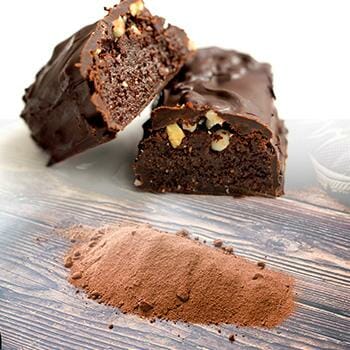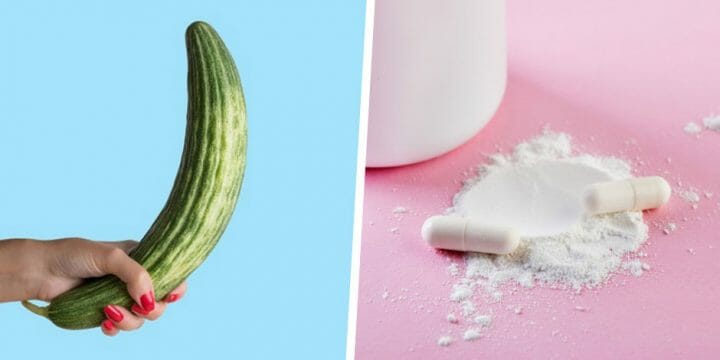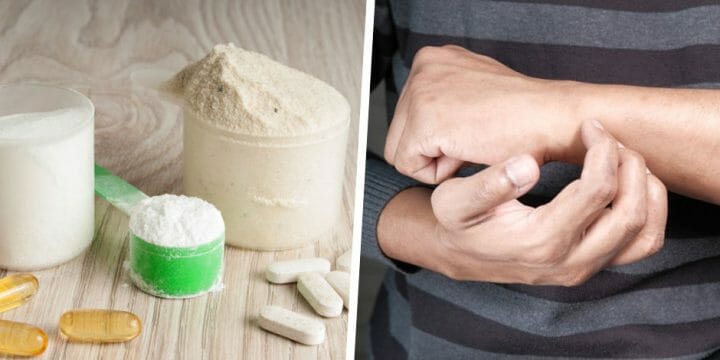As an experienced Health and Performance Coach with a diverse clientele, I frequently encounter a common debate among fitness enthusiasts: the superiority of protein bars versus protein shakes.
This topic, often a subject of lively discussions, has prompted me to delve deeper into the nuances of both options.
In this article, I aim to shed light on this debate, drawing from my extensive experience and knowledge in the field, to guide you toward making an informed choice that aligns with your health and fitness goals.
Quick Summary
- Protein shakes are a superior choice for serious muscle building, while bars are great for on-the-go nutrition and for weight loss.
- Protein bars should be taken in between meals for weight loss. If you want to gain muscles and recover from your fitness routine, take protein shakes within two hours of working out.
- A protein shake can have 20-30 grams of protein per serving. Compared to protein bars which are usually 10-15 grams of protein per serving.
- In my professional view, the choice between protein bars and shakes ultimately hinges on individual lifestyle and fitness goals.
Which Is a Better Source for Protein?

Quality whey protein powder is a better source for people who are looking to form and build muscles as it provides a high concentration of amino acids that aid in muscle growth and recovery post-workout.
From personal experience, I've found it particularly effective for enhancing muscle formation. It's also adaptable for various diets like vegan, keto, or gluten-free, with many powders tailored to these specific needs.
On the other hand, protein bars can be a better fit for those focusing on fat loss, especially if you're on a calorie-restricted diet.
They're convenient for ensuring you receive essential nutrients and protein while keeping your calorie intake in check. However, it's important to remember that excess protein can convert to fat, potentially leading to weight gain.
Which Has Better Nutrition?

From my observations with various clients, I've found that protein bars often offer better overall nutrition compared to shakes.
For example, some of my clients who prefer on-the-go snacks have benefited from the diverse nutritional profile of protein bars, especially those who need quick energy boosts without the hassle of preparation.
Let’s break down how a protein bar and protein powder differ in nutritional value.
Protein Bars
If you need a quick and easy snack, a protein bar is readily available anytime with no elaborate prep. Plus, most bars have a variety of flavors available, so you can have a different one for every snack. Check out some of the best meal replacement bars here.
I’ve noticed that food products like protein bars usually come high in carbohydrates, which can be used by the body for recovery and repair after a fitness workout. It also can have other healthy nutrients like vitamins B6, C, E, and B12.
The biggest issue I’ve seen with protein bars is it can have a lot of added sugar and calories.
Some of them can even have the same or more amount of sugar as candy bars. There isn’t as much sugar or calories in liquid protein shakes compared to protein bars.
Fortunately, there are diabetic meal replacement bars and diabetes friendly-protein shakes with controlled sugar and calorie content.
I would take the time to read the label of protein bars and ensure that the ingredients are good for you.
"It’s...a good idea to look for a short ingredients list to ensure your bar is minimally processed."
- Ericka Stachura
Related Posts:
Protein Powder
If you want the most protein in one snack or meal, then protein powder might be your bet.
A protein shake can have 20-30 grams of protein per serving. Compared to protein bars which are usually 10-15 grams of protein per serving, protein shakes are easily the winner, especially if you're looking to boost your energy for a gym session.
A disappointment with protein powders and shakes is that it doesn’t give you other vitamins and essential minerals that you can get from eating foods. However, a healthy quick fix for that lack of nutrition would be making protein shakes with fruit and milk.
Protein powders are better than protein bars for people whose dietary goal is to gain muscle. Protein shakes have way more protein amounts for every serving. If you give it a go, it will definitely help you get enough protein to build muscle strength. You might want to see our list protein powder for muscle gain.
Which Works Best for Weight Loss?
Protein bars (with generally high carb content) work best for weight loss because they give your stomach the impression that you have eaten.
It's something I've noticed in my coaching experience working with different clients One client in particular found that the higher carb content in protein bars helped them feel fuller for longer, aiding in their weight loss journey. This practical insight aligns with the findings from a study by the Obesity Journal that solid foods can be more satiating than liquids [1].
While both protein bars and protein powders can assist with weight loss, it's important to consider their long-term health implications. Frequent consumption of highly processed protein bars or shakes might lead to an imbalance in nutrient intake and potential reliance on supplements over whole foods.
Moderation and a balanced diet should be prioritized for sustainable health.
Which Is Better for Muscle Gain?

Protein powder is better for muscle gain. Most of the time, protein shakes contain all nine essential amino acids that are crucial to fuel your fitness.
These amino acids can work to form and build muscles and recover from a fitness routine.
They also contain way more protein amounts compared to most protein bars.
Unfortunately, not all of them have excellent results so is better to check our comparison guide for protein powders in order to make a wise decision.
When Should I Take Protein?
You should take protein bars in between meals if you are looking to lose weight. If you want to gain muscles and recover from your fitness routine, take protein shakes within two hours of working out for the best results as recommended by experts from the Journal of the International Society of Sports Nutrition [2].
Protein Powder Review: Herbalife's Protein Powder Review
References:
- https://onlinelibrary.wiley.com/doi/10.1038/oby.2010.258
- https://www.tandfonline.com/doi/full/10.1186/s12970-017-0189-4
About The Author
You May Also Like






